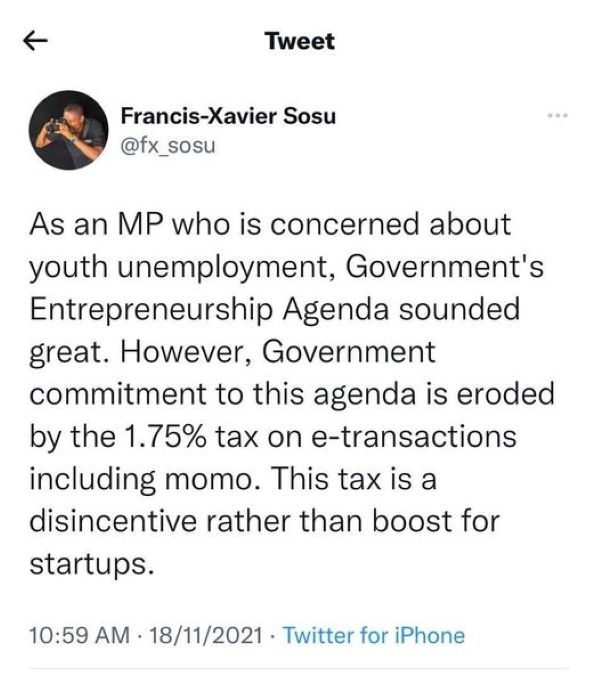The Member of Parliament for Madina Francis-Xavier Sosu said the government’s 1.75 per cent tax on mobile money transactions will serve as a disincentive to persons establishing new businesses.
Finance Minister Ken Ofori-Atta announced the MoMo tax when he presented the 2022 budget to parliament on Wednesday, 17 November 2021.
But in a tweet on a day after the budget reading, the MP said: “As an MP who is concerned about youth unemployment, the government’s entrepreneurship agenda sounded great.”
However, Mr Sosu noted, the E-Levy wears down the government’s commitment to providing support to new businesses.
He said the government’s commitment to ensuring success amount small to medium businesses has been “eroded by the 1.75 per cent tax on e-transactions including MoMo”.

“The tax is a disincentive rather than a boost for startups,” the Madina MP said.
All users of electronic banking across the country will be charged a rate of 1.75 per cent on transactions under the “Electronic Transaction Levy or E-Levy,” once the budget is passed.
According to the Finance Minister, the levy on all electronic transactions across the country is to enable the government to widen the tax net.

He said: “Electronic transactions covering mobile money payments, bank transfers, merchant payments and inward remittances will be charged at an applicable rate of 1.75%, which shall be borne by the sender except for inward remittances, which will be borne by the recipient.”
He added: “This new policy comes into effect from 1 February 2022″.
“The government will work with all industry partners to ensure that their systems and payment platforms are configured to implement the policy.”




